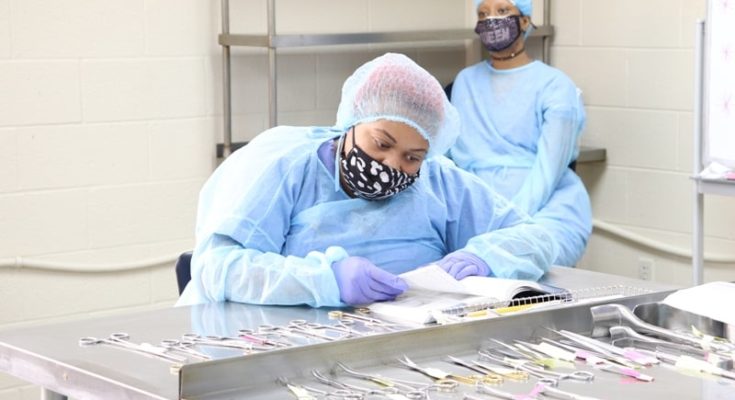Medical facilities need to maintain high standards of cleanliness to ensure the safety of visitors and patients alike. This includes hospital floors, which can harbor bacteria and other pathogens. The surfaces and equipment patients and visitors use are also essential for hygiene. This helps prevent cross-contamination and limits the spread of illnesses and infections. Taking the proper steps to avoid germs and bacterial growth can reduce the number of hospital visits.
Regular cleaning and disinfection schedules should be implemented to eliminate bacteria and fungi. This includes disinfecting doorknobs and countertops near patient bedsides. Hospitals should use hydrogen peroxide cleaners on these surfaces, as these chemicals kill 99 percent of viruses and bacterial growth.
Apart from cleaning the premises of the medical facility, sterilizing medical equipment is essential to ensuring its cleanliness and safety. It is critical to eliminate the risk of microbial contamination, which can lead to the transmission of various infectious diseases. Medical instruments such as biopsy forceps, surgical instruments, and implantable medical devices must be sterilized before they are used.
To protect both patients and medical staff, it is essential to sterilize medical equipment. This process will eliminate any traces of blood or other potentially harmful pathogens, as well as dirt and debris. Sterilization will also prevent rust and corrosion. As a result, sterilization is an integral part of preventing hospital-acquired infections.
Pre-cleaning, high-level disinfection, and sterilization are essential for ensuring that medical equipment and supplies are free of bacteria and other harmful microbes. However, some bacteria may still survive even after disinfecting them. The risk of cross-contamination increases if improper sterilization and disinfection are not performed. This may lead to microbial encrustation, calcification, and biofilm formation. All of these complications can be harmful and may cause health complications in the future.
This is why a career in sterile processing has gained significant popularity in recent decades. Sterile processing technicians perform various tasks that help reduce the risk of infection in patients. They work with special equipment to sterilize surgical instruments and equipment. They also prepare surgical suites for emergency and scheduled surgeries. They may also be responsible for maintaining sterile processing equipment and coordinating repairs.
Being a sterile processing technician is a rewarding career. You’ll be working in a fast-paced environment, and you’ll be working behind the scenes to keep patients and doctors safe. They work in a hospital, outpatient care centers, and assisted living facilities across the country.
If you are looking for the best online sterile processing technician courses around, then Martinson College is for you. We are helping our students understand the importance of proper sterilization and efficient distribution of various medical equipment and assisting them in getting a sterile processing distribution technician certification. To learn about our courses and class schedule, contact us now by calling 888-625-0059 or clicking here.




